Ronald Reagan: The Peacemaker
Examine how Ronald Reagan confronted the Soviet Union and won the Cold War.
Spring 2024
Online Fellowship
“The proper method for the study of politics is biography,” wrote a distinguished academic. Yet the lives of eminent statesmen, though often the subject of great (and popular) books, are rarely the subject of college syllabi. This virtual fellowship will use the rigorous study of great biography to investigate a wider set of questions about geopolitics, leadership, and human character.
Guest speakers will participate in the seminar, as well, including both scholars and national security leaders. Fellows will have the opportunity to reflect on the role of individual personality in history and what makes for great leadership—and also great biography.
Image courtesy of Wikipedia Commons
Vance Serchuk & Gen. David Petraeus on Leadership & Biography
Who Should Apply? Advanced undergraduates, gap-year students, young professionals, and graduate students are all eligible to apply. Fellows may apply for, and participate in, multiple seminars. Each seminar is capped at 15 fellows.
Dates & Times: All seminars will meet online via Zoom at a set date and time. See the individual course pages for full details.
Course Materials: All course materials will be provided.
Deadline: Applications will open soon. Admission decisions will be made on a rolling basis.
Please provide a brief account (approximately 500 words) of your interest in your selected seminars.
Unofficial; required only for current undergraduates & recent graduates.
10 pages maximum; double-spaced. Please send academic writing that best showcases your ability to invent and sustain a persuasive argument, no matter the subject-matter.
Provide the name and contact information of a professor, mentor, or supervisor.
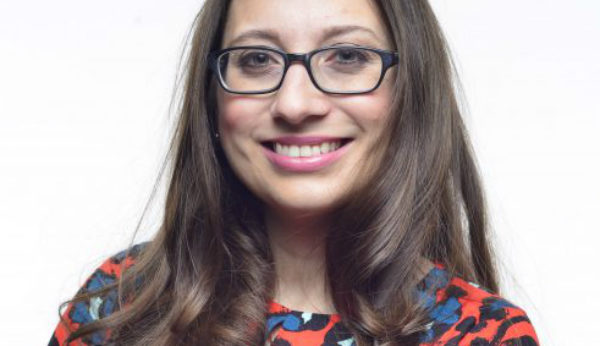

Deputy Director of Communications, Goldwater Institute
American Enterprise Institute, Burson-Marsteller
Drew University
Jennifer Tiedemann spent six years at the American Enterprise Institute in Washington, DC, working with scholars Norm Ornstein and Karlyn Bowman. While at AEI, she studied with Bill Kristol as part of his Advanced Institute on American exceptionalism. Jennifer has recently started a career in public affairs and communications with the Goldwater Institute.
I heard about the Foundation through AEI while I was working in their Political Corner doing political and public opinion research. In spring 2013, Bill Kristol was teaching a class on American exceptionalism, which is something that’s very interesting to me. The topic was also relevant to my work, and became even more so throughout my time at AEI.
American exceptionalism is something we think about a lot when focusing on public opinion research. One of the major topics we grapple with is the American dream. Part of getting a better sense of what the American dream is about is knowing what makes America special. It’s important to understand what’s currently in Americans’ heads and what’s included in public opinion, but then you’ve also got to recognize the history that informs those views. Having a background in historical writings and research in order to frame current American ideals is essential, and the course certainly helped add to my understanding of that background.
One of our readings in “Is America Exceptional?” looked at American ideals in film. I remember reading about the concept of the Westerner and how it’s a very quintessentially American ideal. When studying America, we’re all used to reading Tocqueville and writers from that era, but to read something that was a modern take on what exactly makes an American idea is an approach I’d never taken before in an academic setting. Those readings certainly stayed in my memory.
Hertog’s aim is to equip students and young professionals with the historical and educational tools they need to approach politics, political philosophy, and political analysis. Hertog works with the knowledge that a political mind needs to be grounded in history—it’s not useful to look at things in a vacuum. It’s easy to forget about that in Washington, because so much of our work focuses on the day-to-day. Hertog asks participants to step back and really examine the principles that inform what we’re all trying to accomplish, which is vital.
Absolutely. Hertog Programs can be beneficial for both. Public relations and public policy are different fields, but there are a lot of similarities between the two worlds. One of the largest similarities has to do with appreciating what makes people tick—why they think what they think, and why they do what they do. Having a better understanding of something like American exceptionalism is important to that process, because it definitely informs how we communicate with people. A background in those historical ideals is key to knowing what sorts of arguments are going to be most coherent, most cogent, and most influential in your work. All Hertog Programs seem to be designed to give participants a way to better communicate with different types of people.
What I’m primarily interested in is writing. I write a lot for the Independent Women’s Forum, which gives me an opportunity to reflect not just on politics but also on cultural topics. In 10 years, I definitely still want to be writing. I’ll certainly be thinking about these same ideas and trying to bring those thoughts to the people who read my work. My experience with Hertog was very helpful in informing the way I think, and it gave me a clearer picture of how others think as well.
Jennifer Tiedemann spent six years at the American Enterprise Institute in Washington, DC, working with scholars Norm Ornstein and Karlyn Bowman. While at AEI, she studied with Bill Kristol as part of his Advanced Institute on American exceptionalism. Jennifer has recently started a career in public affairs and communications with the Goldwater Institute.
“Hertog’s aim is to equip students and young professionals with the historical and educational tools they need to approach politics, political philosophy, and political analysis. Hertog works with the knowledge that a political mind needs to be grounded in history—it’s not useful to look at things in a vacuum. Hertog asks participants to step back and really examine the principles that inform what we’re all trying to accomplish, which is vital.”
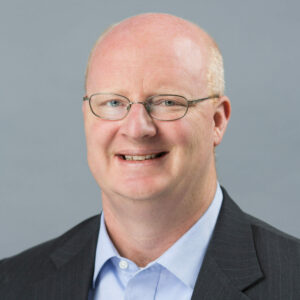
William Inboden
William Inboden is Executive Director and William Powers, Jr. Chair at the Clements Center for National Security at the University of Texas-Austin. Previously he served as Senior Director for Strategic Planning on the National Security Council at the White House.

Vance Serchuk
Vance Serchuk is Executive Director of the KKR Global Institute and an Adjunct Senior Fellow at the Center for a New American Security. Prior to joining KKR, Mr. Serchuk served for six years as the senior national security advisor to Senator Joseph Lieberman (I-Connecticut).

Michael Doran
Michael Doran, an expert in U.S. policy toward the Middle East, radical Islam, and the Arab- Israeli conflict, is a Senior Fellow at the Hudson Institute in Washington, DC. He has also held a number of senior U.S. government posts related to Middle East policy and strategic communication.

Daniel Johnson
Daniel Johnson is an author, journalist, and founding editor of Standpoint, a monthly British cultural and political magazine. He is the author of White King and Red Queen: How the Cold War was Fought on the Chessboard.
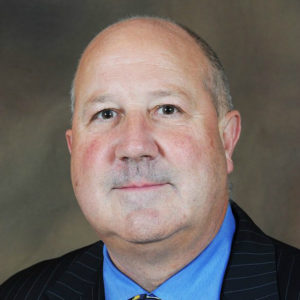
Steven F. Hayward
Steven F. Hayward is a senior resident scholar at the Institute of Governmental Studies at UC Berkeley, Senior Fellow of the Claremont Institute, and a visiting lecturer at Boalt Hall Law School. Hayward is the author of a two-volume narrative history of Ronald Reagan and his effect on American political life, The Age of Reagan: The Fall of the Old Liberal Order, 1964-1980, and The Age of Reagan: The Conservative Counter-Revolution, 1980-1989.
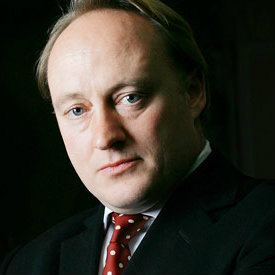
Andrew Roberts
Andrew Roberts is presently a Visiting Professor at the War Studies Department at King’s College, London and the Lehrman Institute Lecturer at the New-York Historical Society. He is the author or editor of numerous books, including Masters and Commanders, which won the Emery Reves Award of the International Churchill Society and was shortlisted for The Duke of Westminster’s Gold Medal for Military History and The British Army Military Book Award. He is presently writing a biography of Sir Winston Churchill.

Adam J. White
Adam J. White is the Laurence H. Silberman Chair in Constitutional Governance and senior fellow at the American Enterprise Institute, where he focuses on the Supreme Court and the administrative state. Concurrently, he codirects the Antonin Scalia Law School’s C. Boyden Gray Center for the Study of the Administrative State.
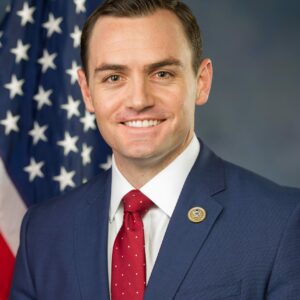
Mike Gallagher
Mike Gallagher served for four terms in the U.S. House of Representatives as Wisconsin’s 8th Congressional District representative. Previously, he served seven years on active duty in the U.S. Marine Corps, including two deployments to Iraq.
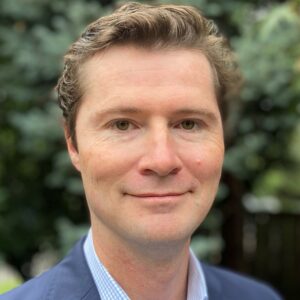
Aaron MacLean
Aaron MacLean is a senior fellow at Hudson Institute and the host of the School of War podcast. Previously, he was senior foreign policy advisor and legislative director to Senator Tom Cotton of Arkansas. Aaron served on active duty as a U.S. Marine for seven years, deploying to Afghanistan as an infantry officer in 2009–2010.

Diana Schaub
Diana Schaub is a nonresident senior fellow at the American Enterprise Institute (AEI), where her work is focused on American political thought and history, particularly Abraham Lincoln, Frederick Douglass, African American political thought, Montesquieu, and the relevance of core American ideals to contemporary challenges and debates. Concurrently, she is Professor Emerita of Political Science at Loyola University Maryland, where she taught for almost three decades.
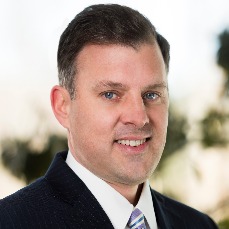
Flagg Taylor
Flagg Taylor is the Executive Director of the Center for Civics, Culture, & Society, at Miami University. His research specialty is in the history of political thought and American government, especially the question of executive power. He is Chair of the Academic Council of the Victims of Communism Memorial Foundation.
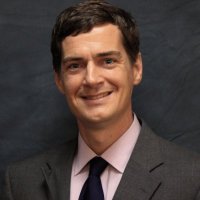
Hugh Liebert
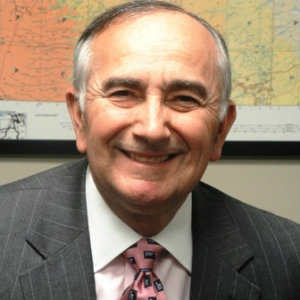
James M. Dubik
LTG James M. Dubik (U.S. Army, Ret.) is a Senior Fellow at the Institute for the Study of War and a Professor at Georgetown University’s Security Studies Program. General Dubik has extensive operational experience in Iraq, Afghanistan, Japan, Korea, Thailand, Bosnia, Haiti, Panama, Honduras, and in many NATO countries.
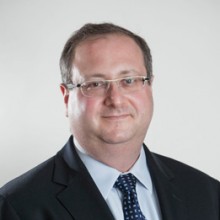
Frederick W. Kagan
Frederick W. Kagan is a Senior Instructor with the Hertog War Studies Program at the Institute for the Study of War. The author of the 2007 report “Choosing Victory: A Plan for Success in Iraq,” he is one of the intellectual architects of the successful “surge” strategy in Iraq. He is the director of AEI’s Critical Threats Project.
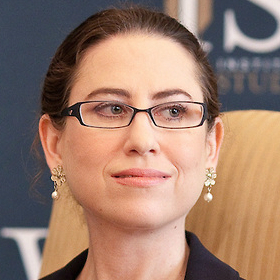
Kimberly Kagan
Kimberly Kagan is a Senior Instructor with the Hertog War Studies Program and founder and president of the Institute for the Study of War. She is a military historian who has taught at the U.S. Military Academy at West Point, Yale, Georgetown, and American University.